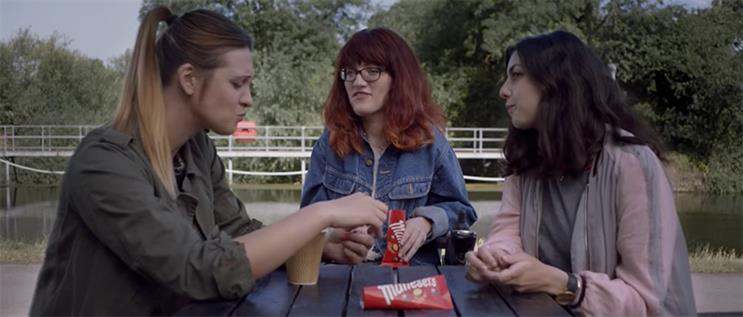Flicking through the papers a few weekends ago, there was an article about casting actors for roles representative of people with disabilities. It seems that the BBC are facing criticism over the latest casting for the remake of The Elephant Man, opting to cast "Hollywood" talent rather than opening the opportunity up to someone actually living with a disability.
It left us wondering: are these decisions made because the casting directors are on autopilot or is it because they believe the pool of talent living with disabilities is limited? Surely it can’t be because they don’t feel comfortable working with disabled talent? While we don’t know for sure, unfortunately there is still a huge stigma, across a broad range of industries, when it comes to disability – and that includes advertising.
Our industry is striving to become more representative of society and disability should be part of this. In the UK alone, 13.9 million people are living with a disability and they are estimated to spend £80bn per year (according to data from the Department for Work & Pensions). We know from various advertising diversity blunders that we can’t assume we automatically know the "right" way to talk to people living with a disability.
Learning from experience
This was true for us when we were developing our work for Maltesers, released during the 2016 Paralympics in partnership with Channel 4. We wanted to represent life with a disability accurately and that meant talking to, and casting, real women with real disabilities. We worked closely with disability charity Scope to ensure that we remained sensitive to our actors’ needs both on and off the set; we spoke with female friends (this being Maltesers, after all) living with a disability to better understand their lives; and we laughed uproariously with them as they shared their stories with us.
What we learned overwhelmingly from this process is that the "othering" of disabled people, or the pigeonholing of them into "inspiration porn" (a phrase borrowed from the late Stella Young), continues to leave them out of opportunities; but by holding up a mirror to their lives in our advertising, we could tell universal stories about the mishaps of women’s lives and share a moment of laughter together.
A business imperative
If 20% of the UK population are living with a disability, have we asked ourselves why 20% of our workforces don’t reflect this reality?
When it comes to identifying opportunities for our businesses and brands, if we’re not talking to or recruiting people living with disabilities, aren’t we missing out on a huge wealth of knowledge to unlock brilliant opportunities, products and services?
Take, for example, Ken Harrenstien, a deaf Google software engineer who in 2010 developed the auto-caption function on YouTube. For him, the challenge was straightforward – he realised that the rapid growth of online video was becoming a barrier for him when it came to the web (according to a CNN report). This new technology, from one person’s insight, changed the lives for many. Just imagine what other insights we would glean if we listen to and learn from individuals living their lives with different challenges to our own.
More broadly, there are also huge economic benefits to diversifying who and how we recruit. Scope published a paper on the impact of a rise in employment among disabled adults – and the stats are astounding. Just "a 10 percentage point rise in the employment rate would contribute an extra £12bn to the Exchequer by 2030" (source: Scope Enabling Work, 2015).
National Inclusion Week provides an opportunity for all of us to sit up and take responsibility for how we behave when it comes to our workplaces, our products and our communications. It forces us to ask those "hard" questions: are we on autopilot? Could we be accused of behaving in the same way as the BBC? And are we ready to recruit and reflect the nation as it is, not as we have assumed it is?
Alaina Crystal is global strategy director and Sonia Karia is senior board account director at Abbott Mead Vickers BBDO


